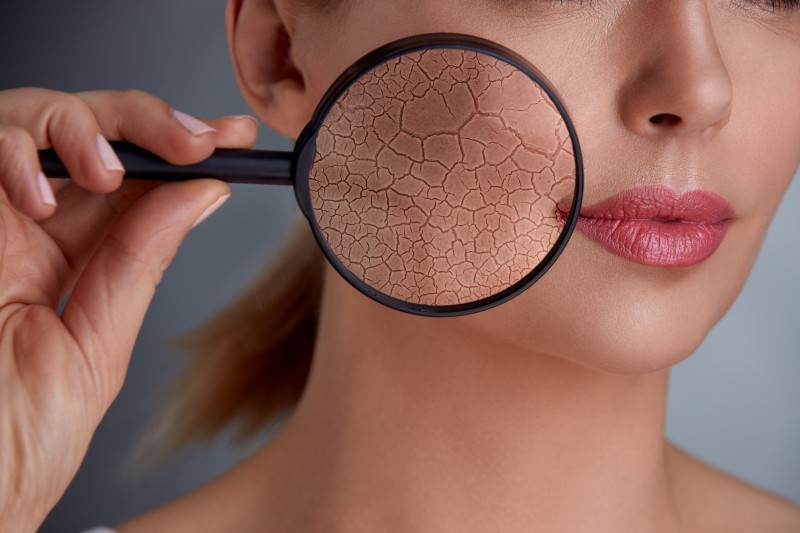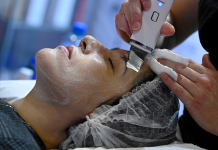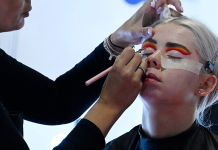Education: Why you need Advanced Skin Training

If you want to be a skincare specialist then you have to know your stuff. More brands are offering advanced skincare training – but now there are new non-branded advanced courses launching. So who should be signing up for these?
It's true to say that the beauty industry is changing rapidly. Never an industry to rest on its laurels, in recent years growth in aesthetic treatments has significantly speeded up, not only in non-surgical treatment but also in cosmeceutical brands that make a significant difference in the skin after just one treatment. Now, many clients are looking for results above everything, and are turning to the expertise of the skin therapist to tailor a programme that will give them the results they crave. For the therapist, the industry has grown so much that there's a whole range of treatments to choose from, in order to make up the best treatment possible for each and every client.
But of course there's a catch. Many of these treatments and machines require a lot of knowledge and experience, and this you do not get overnight. The general beauty therapist courses can only go so far, and if you truly want to specialise in skincare, then you must keep learning – for life. However, if skin is your thing, investing in advanced skincare training could give you a head start on the competition.
Anna Keely, managing director of Bronwyn Conroy International Beauty School, which offers a range of advanced skincare and aesthetics courses in its Dublin and Cork schools, explains further:
“Advanced aesthetic treatments are more and more in demand. A therapist must possess the knowledge, skills and confidence to recommend the correct treatment as well as the correct ingredients to the client. It is no longer enough to know a skincare brand. Instead, it is the ingredients and the various skin conditions, environmental challenges, contra indications etc that a therapist must be fully knowledgeable of and this can only be obtained by study and practice.”
Anna believes that everybody should be constantly adding to their education. She says:
“In our opinion, CPD [continuing professional development] should be compulsory for all professional therapists. If an accountant who looks after your money requires CPD, why does a therapist who looks after the body's largest organ, the skin, not require it?”
Essential content
If you are looking for training in advanced skincare, what sort of course content should you be looking for? Anna gives us a brief rundown. “It is essential that the therapist has a full and thorough understanding of how the body works. Anatomy and physiology of the body, Level 3, is now a mandatory unit to complete in order to participate in any of the new Level 4 or Advanced Aesthetic Training and to ensure that full insurance can be obtained. Ingredients, environmental factors, the ageing process and so on are all critical elements of any skincare course.
“This is not a two- or a three-week course, this sort of course requires dedication, study, practice and professionalism. However, thanks to these courses, there is now a clear pathway for any therapist wishing to work in aesthetic treatments.”
Brand vs Non-Brand
Many of the more advanced cosmeceutical brands offer in-depth training, and this can be incredibly useful, as Nimue Brand Manager, Victoria Sargeson, explains:
“Education in an industry such as skincare is so important, especially with more results-driven product ranges. A qualification and thorough understanding of the skin and its anatomy and physiology is required to be able to confidently prescribe products, as is the theory and science behind the brand you are bringing on board. With such a science-led brand like Nimue, a two-day complimentary ‘Core' education course is required to complete and pass prior to being able to stock the brand.
“During the Core Education course, A&P is touched on again with full history and science behind the brand. The second day is dedicated to learning more about homecare products and students must then undergo a practical assessment and written assessment. By putting these measures in place, and supporting therapists to succeed, we can be confident that every Nimue therapist is delivering a premium and consistent experience to clients.”
However, if you're looking to really specialise in skincare, rather than simply train in a brand, a course that is not allied to one brand is incredibly useful to complete, and can really put your skillset head and shoulders above the rest. “Upon completion of a course, a skincare therapist should have the skills to work with any product as they should understand the ingredients of the products and how they work with the body to produce the required results,” explains Anna.
Mapping out your career
So you've decided to specialise in skincare and become the new Skin Nerd – what should you be signing up for? It is important to complete all your courses, from the start, as you have to have knowledge of the basics from a foundation course before advancing.
“In Bronwyn Conroy it is possible to start at the very beginning, with a Level 2 Foundation course in Skincare with both ITEC and CIBTAC. If this is combined with a Level 3 in Anatomy & Physiology, it allows the student to move on to much more advanced treatments,” says Anna.
“With such advanced treatments, experience is essential; many colleges, including Bronwyn Conroy, offers work experience as part of the course – our advice is to get as much experience as possible, both within the college and in a (supervised) salon environment.”
When choosing a course, be mindful of the qualification and choose a school that is constantly looking to advance beauty training in Ireland and ally itself with best international practice. “Bronwyn Conroy was one of the first schools in Ireland to have been approved by ITEC to offer the Level 4 Advanced Aesthetic Courses. We are also the first school outside of Zimbabwe to complete the exam for the brand-new CIDESCO Aesthetic Certificate in February 2019,” Anna explains.
“We consistently monitor the international market for trends in services and treatments and then ensure that we have course options that matches that requirement.”
It is also possible to sign up for flexible courses – online and weekend courses are popular options for people with busy jobs. “We are delighted to introduce a new online Anatomy & Physiology Course in January, which will allow students to study the theory at their own pace. We will offer monthly Facetime options for students who may be struggling with any part of the course. This is available in both our Dublin and Cork branches,” says Anna.






